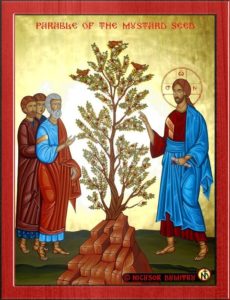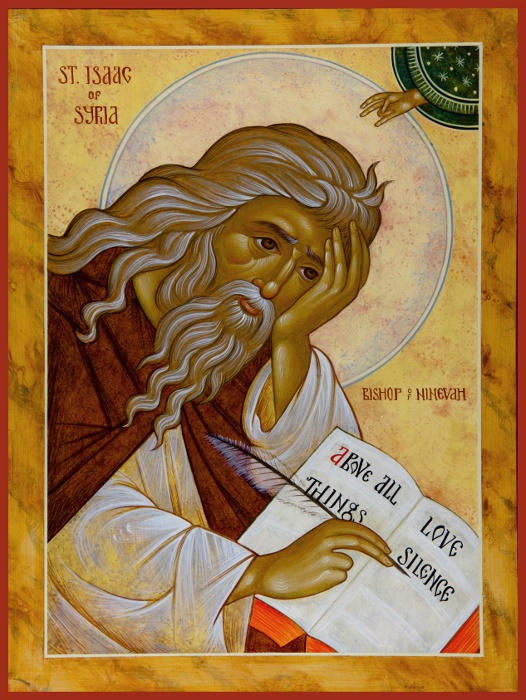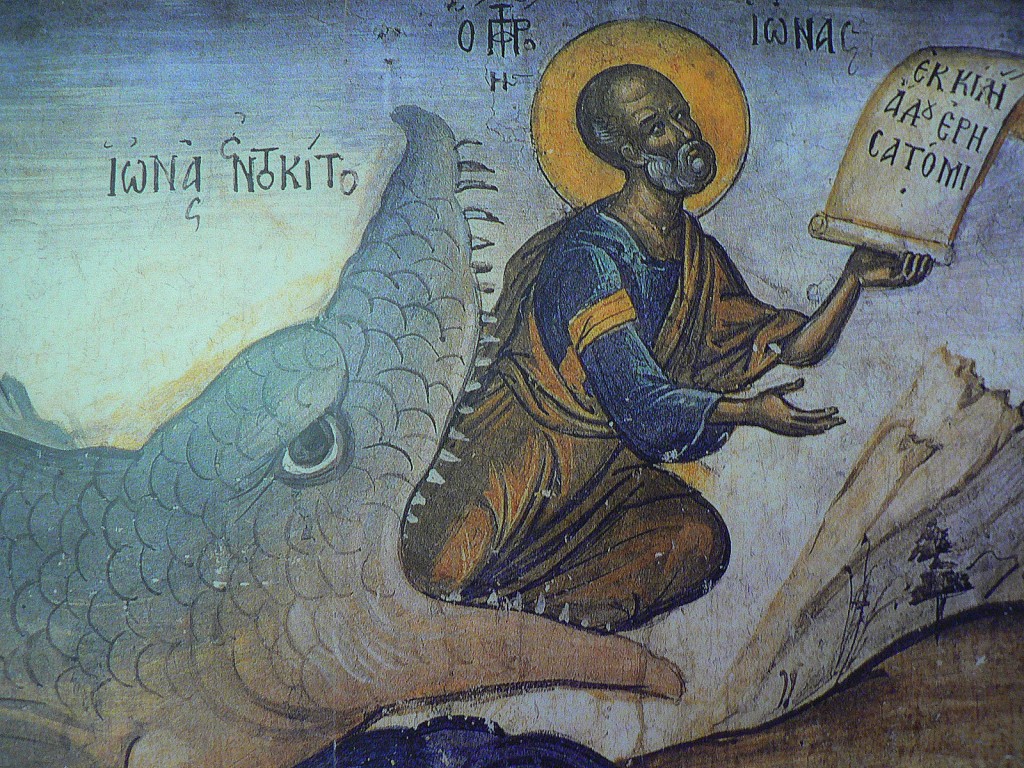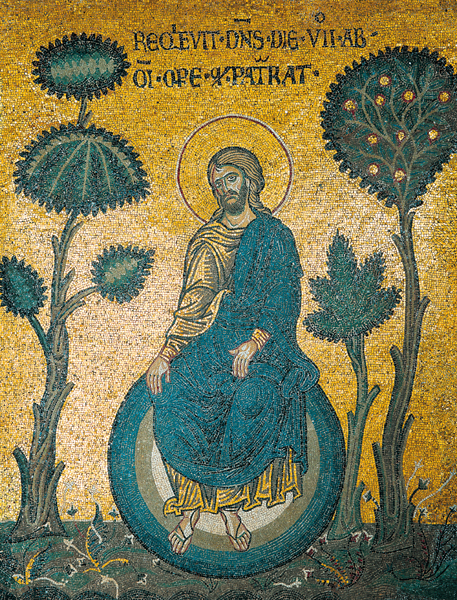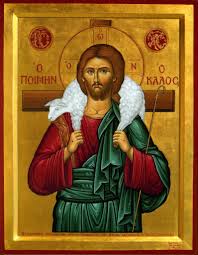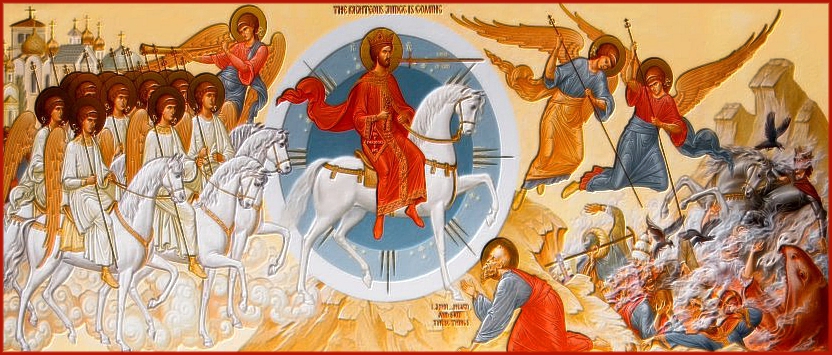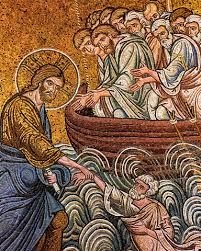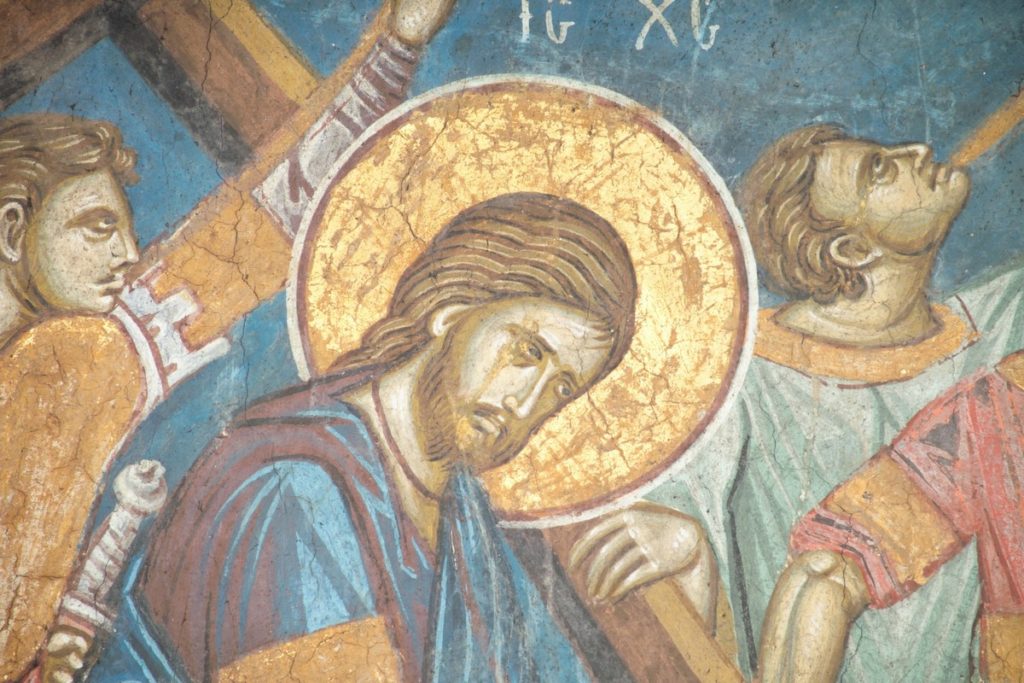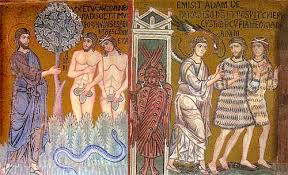Thursday of the Fifth Week of Matthew
Listen to an audio podcast of this commentary at https://www.spreaker.com/user/youngfaithradio/matt5th_1
In today’s Gospel reading, the Lord Jesus reminds us to realize who our true relatives are:
At that time, while Jesus yet talked to the people, behold, his mother and his brethren stood without, desiring to speak with him. Then one said unto him, Behold, thy mother and thy brethren stand without, desiring to speak with thee. But he answered and said unto him that told him, Who is my mother? and who are my brethren? And he stretched forth his hand toward his disciples, and said, Behold my mother and my brethren! For whosoever shall do the will of my Father which is in heaven, the same is my brother, and sister, and mother.The same day went Jesus out of the house, and sat by the sea side. And great multitudes were gathered together unto him, so that he went into a ship, and sat; and the whole multitude stood on the shore. And he spake many things unto them in parables. – Matthew 12:46-13:3
St. Theophan the Recluse, commenting on Our Lord’s words, discusses the meaning of spiritual kinship:
“For whosoever shall do the will of My Father Who is in heaven, the same is My brother, and sister, and mother (Matt. 12:50).” By this the Lord gives us to understand that the spiritual kinship which He came to plant and raise up on the earth is not the same as fleshly kinship; although in the form of its relationships, the spiritual is identical to the fleshly. The spiritual also contains fathers and mothers – they are those who give birth to people with the word of truth, or the Gospel, as the Apostle Paul says. And it contains also brothers and sisters – those who are born spiritually from the same person and grow in one spirit. The bond between [spiritual] relatives is founded on the action of grace. it is not external, not superficial, but it is as deep and alive as the fleshly bond, only it has its place in another, much higher and more important sphere. This is why it predominates over the fleshly and, when necessary, offers the fleshly as a sacrifice to its spiritual interests without regret, in full certainty that this sacrifice is pleasing to God and is required by Him. – Thoughts for Each Day of the Year, p. 140
Today, as we know, the natural, or traditional, human family is under attack as never before in “mainstream” society, to the point at which it is the exception rather than the rule. To see a happy family of faithful, once-married, loving father (a man) and obedient mother (a woman) with many happy, healthy children, surrounded by an extended family of caring grandparents and other relatives – though such families predominated in our society within living memory – is like encountering a vision from a lost world. When the poor slaves (or, rather, lab rats) of the present day dystopia – brainwashed, addicted, self-mutilated, fornicating, aborting, sodomizing, having children out of wedlock with various “partners,” experimenting with their “identity,” hooked on demonic music and demonic video, feminized men and masculinized women mentally and morally paralyzed by the basest passions and near-complete ignorance – encounter such a vision, they hardly know what they are looking at; they do not know where to place it in their understanding of reality. The age-old normal has become unfamiliar, even disturbing.
Living as we are surrounded by such a nightmare, it may seem rather hard to us for the Lord and His saints to call us not only to live as traditional families but furthermore to surpass even the natural bonds of family and place greater value on our spiritual relationships. The truth of the matter, however, is that until we place our natural families in right order to our spiritual obligations and spiritual relationships, the natural family will continue to be lost. As Pushkin once said, if God be not in first place, He shall consent to be in no place. If we do not subordinate even our traditional, natural, and praiseworthy earthly relationships to His holy will and holy plan for man, God will not hang around as an accessory, a deus ex machina to swoop in and conveniently fix the messes that we make, in order for us to live nice worldly lives according to the chimerical image of a “wholesome” 1950s TV show.
Where do we start? Let Orthodox people who are married and have children construct their family life on the old pattern, as best they can: Daily family prayer, family meals, faithful Church attendance Saturday night and Sunday morning, and feast days as much as possible. Let father and mother with their children fast according to the Church’s laws, and practice frequent confession and Holy Communion. Let families prioritize according to the Gospel: Better to be poor and spend more time at Church and with your children, than for mother and father both to work 60 hours per week in order to afford things people do not need nor until recently even imagined that they needed. Turn off the media input and cut out all the extraneous “activities,” and make your home a happy, quiet, ordered holy place.
Let the single people earnestly seek God’s holy will for their lives and use their free time to serve the Church. Are they being called to the monastic life? The Lord will show them the way. Are they being called to marriage? The Lord knows how hard it is to find a spouse nowadays: He would not have put them in the situation in which they find themselves if it were not for their salvation. The main thing is to remain courageous and full of hope, based on faith.
All of the above, though it is actually just a “baseline,” a starting point, may seem too much to most of us, surrounded by circumstances that seem to entrap us in a vicious cycle of worldly cares and compromised principles. But our situation is not hopeless, not at all. For – and here is the Good News – the Orthodox Faith is not a self-help program by which we pull ourselves up by our own bootstraps. It is the power of God working in our lives, based on the confession of the True Faith. This power, coming by grace, is experienced directly when we put spiritual things first. Has the Church failed us? Is it not so, rather, that we have failed Her?
When the Lord called us to “…be perfect as your heavenly Father is perfect,” He meant it. We are failing all the time, and therefore we must live in repentance. Yes, the force of circumstances may be such that normal, much less spiritual, life seems unattainable at times. But let us, rather than living in alternating denial and rage, look at our circumstances straight in the eye, always tell the truth to ourselves and to others, and weep for our sins and the sins of the whole world! Let us constantly sorrow and grieve over so many souls being lost, and pray more earnestly, more energetically, more faithfully, with tears, to be delivered from the traps that surround us! “Taste and see that the Lord is good.” He will hear our prayer, and He will deliver us.
In addition to, or, rather, as the only effective setting for, our own life of prayerful repentance and our own domestic discipline, we have the life of the Church! St. Theophan, in the passage above, speaks movingly of that special bond felt among spiritual siblings, the faithful who are born of the same spiritual father or mother. This is seen most clearly in the circles of the pious faithful who have been given new birth by a truly God-inspired monastic elder or eldress; how they see each other with new, spiritual eyes, and cherish each other. They experience family at a whole new level, and yet – if the elder be genuine and not a cult leader – this new experience transfigures and empowers the domestic church life of their natural families and does not denigrate it. Truly, as St. John of the Ladder writes: God is light to the angels, angels are a light to monks, and monks are a light to men.
Many of us – most of us – however, especially in the diaspora, do not have access to such a monastic figure. We trust, however, in the grace that is in the Church. If our parish priest is pious and God-fearing, if he preaches Orthodoxy and ministers the Holy Mysteries with godly fear, if he patiently hears our confessions and gives us traditional advice based on the Fathers, we find new birth through him, in virtue of his office, which is from God and not from man. Increasingly we need for our scattered parishes to be true spiritual families, in which the parishioners strive spiritually together, loving and helping each other. The system under which the various parish churches are viewed only as buildings (albeit holy buildings) among which unaffiliated, uncommitted, and generally unsupportive Christians – whatever their outward show of piety – simply circulate to “light their candle,” and in which the clergy are merely cultic functionaries dispensing services to “customers” on demand no longer works (if it ever really worked!). Let us commit to our parish churches as our true families, love and respect our priests as fathers in Christ, and help one another!
Finally, we must speak of the role of the godparents. Time is long past when the godparent relationship may be allowed simply as a social tie ritualistically sealed by an obligatory baptism service grinned and giggled through as a sentimental cute-baby event. Sacramental kinship that is exploited to cement merely worldly relationships is not only less than what it should be, but is positively displeasing to God, as being a perversion of that which is holy. Every prospective godfather or godmother must put spiritual things first, accept to baptize a child (or adult!) as a sacred duty, and do his best to pray for, encourage, enlighten, and edify his godchild with all fear of God and love. If this is in place, then the social side – financial help, companionship, etc. – will flow naturally from this, with discretion. How delightful for the soul of a child, when, in addition to his natural father and mother, he has godparents whose pious example and wise words elevate his innocent soul! All the earthly helps they give – presents, outings, etc. – are transfigured by Faith. This is a taste, for the child, of Paradise on earth.
When all is submitted to the hierarchy of goods ordained by God, all is well. Let us take steps today, making a short list of those behaviors we do have control over and can change, and pray earnestly to the Lord to enlighten us regarding our spiritual families and our earthly families, that we may see all things in light of the Gospel, set good priorities, and experience the power of grace.
God is with us.

